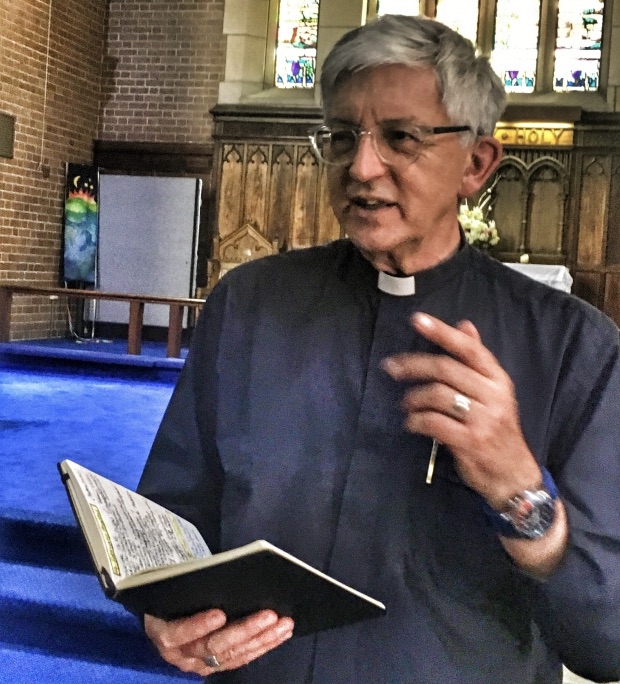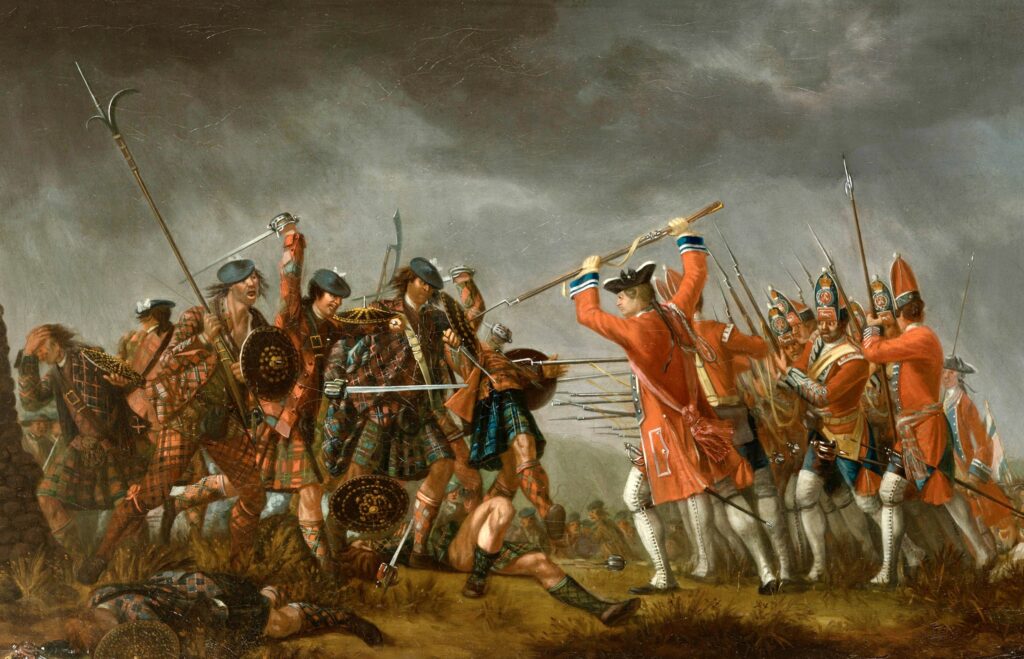Surrender is not a popular word, is it? Almost disliked as much as the word submission. It implies losing, and no one wants to be a loser. Surrender evokes unpleasant images of admitting defeat in battle, forfeiting a game, or yielding to a stronger opponent. The word is almost always used in a negative context. In today’s competitive culture we are taught to never give up and never give in. So, we don’t hear much about surrendering. If winning is everything, to surrender is unthinkable. We would rather dwell on winning, succeeding, overcoming and conquering not yielding, submitting, obeying, or surrendering. It is ironic then that surrender is at the heart of the Christian faith.
On Palm Sunday Jesus rode on a donkey not a horse. Jesus came in peace not war, to surrender not conquer. Jesus came to give his life as a ransom sacrifice, to be the Passover lamb, to make atonement with God. And when some in the crowd laid their coats on the ground, it was a sign of their surrender to him. Because surrender is the natural response to God’s grace and mercy. Our surrender is called many things in scripture: consecration, taking up your cross, dying to self, yielding to the Spirit, presenting ourselves as a living sacrifice. What matters is that we do it, not what we call it.
Category Archives: preaching
What Can I do When I am Really Desperate? (Matthew 15:21-28)

When you find yourself in deep trouble, when the rubber has hit the fan, it really does not matter whose fault it was or what caused it. All you really want is someone to help, someone to understand, someone to get you out of trouble. You see dying people, broken people, hurt people, used and abused people, don’t need theological explanations, or self-help tutorials, they need practical help, not next month, not next week, but today, right now, this very minute.
In Matthew 15 we meet a mother. A desperate mother. A mother with a sick child. Imagine that you’ve carried this baby in your womb for nine long months. You’ve been through the excruciating pain of childbirth. You’ve nursed her, fed her, washed her, changed her. Watched her grow, take her first step, say her first word. You can still remember her first day of school. How pretty she looked in that dress. The first time you let her out of your sight. She’s your little girl.
Continue readingHow do you Prefer your Venite? Strong or Skinny? (Psalm 95)

Except on Easter Day, “upon which another anthem is appointed’, every single morning of the year, in every parish in England, all God’s people should gather together to encourage one another with the words of the Venite, exultemus Domino– ‘O come, let us sing unto the Lord’.
Well, at least that was what Thomas Cranmer and the English Reformers intended, which makes this psalm – Psalm 95 the most frequently and most widely recited hymn in the world.[1]
Indeed, Psalm 95 has been used in daily worship for at least 1,600 years and probably for much longer. Around 320 AD, Athanasius wrote: “Before the beginning of their prayers, the Christians invite and exhort one another in the words of the 95th Psalm.” Not surprising therefore, Peter Toon observes, at the beginning of the English Reformation, this “Invitatory Psalm” is described in the Primer (1543) of Henry VIII as “A Song stirring to the Praise of God.” And what a stirring summons it is! In the Booke of The Common Prayer (1549), Psalm 95 is very near the beginning of “’An Ordre for Mattyns dayly through the Year’. From then onwards Psalm 95 was a required part of Morning Prayer or Matins.”[2]
The Clash of Two Kingdoms (Matthew 10)

A while back I experienced one of the most restful weeks of my life. We spent a few peaceful days by the shores of Loch Ness. The area is very isolated with slow, windy, single track roads. Not a problem because we saw very few cars. The house used to be hotel and I can see why it ceased trading. It was two miles off the single track B road that runs along the shore between Inverness and Fort Augustus. Nestled by a small loch and surrounded by hills, there was no TV reception and my mobile phone didn’t work either. We saw very few people but lots of sheep and goats. The nearest shops were miles away and going to buy a newspaper or supplies was a treat. It felt very isolated.
Time seemed to slow down. Everything revolved around day light, eating, sleeping, feeding the animals and the weather, and there was a lot of that. I am sure I could have got used to it with more time – it was tempting – but every time I opened my mouth, it was obvious that I wasn’t a local. Rich in history, the road and forts along the geological fault line that created Loch Ness – Fort William, Fort Augustus, Fort Urquhart, Fort Gorge, remind us of the attempts by the English to tame the wild Celts. On the 16th April 1746, the last battle on British soil took place nearby at Culloden Moor.
Continue readingThe Great Commission: Our Ultimate Purpose in Life (Matthew 28)

“What have you achieved? What have you achieved? You lost your chance, me old son. You contributed absolutely nothing to this life. A waste of time you being here at all. No place for you in Westminster Abbey. The best you can expect is a few daffodils in a jam jar, a rough-hewn stone bearing the legend ‘He came and he went’ and in between – nothing! Nobody will even notice you’re not here. After about a year afterwards somebody might say down the pub ‘Where’s old Hancock? I haven’t seen him around lately.’ ‘Oh, he’s dead y’know.’ ‘Oh, is he?’ A right raison d’etre that is. Nobody will ever know I existed. Nothing to leave behind. Nothing to pass on. Nobody to mourn me. That’s the bitterest blow of all.” That is how Tony Hancock ended his last TV monologue appearance in 1964. When he died four years later from an overdose few people realized it wasn’t an act or a script, but how he actually felt.
The Spirit of Pentecost Today (Acts 2)

One word could just about sum up many of the news stories this week. Whether it’s to do with the Home Secretary’s driving ability, Boris Johnson’s integrity, Brexit’s waning popularity, global warming’s intensity, EV battery sustainability, or Apple’s security. The word is ‘revelation’. We are fascinated with exclusives, when secrets are revealed in the media – except it seems when they are, our own. Those deeply personal things that matter to us the most – our children, our family, our bodies, our emails, our text messages, our age, our photos, our income, our bank accounts, we keep these private, and in many cases wisely so. The more important, the more personal, the more sensitive the information, the more likely, we will want to keep them private, confidential, or concealed. And many people feel the same way about their religious faith. Its personal. Its private. And it remains concealed. How ironic then that Jesus commanded us to do the very opposite.
On Easter Sunday we celebrated the birth of the Church. At Pentecost we celebrate the baptism of the Church. Let us explore acts 2 under three headings: the context, the message and the experience of Pentecost.
Continue readingThe Lord’s Prayer for You (John 17)
Did you ever watch the 1960’s BBC crime drama Maigret? Created by Georges Simenon, the pipe smoking Chief Inspector Jules Maigret is one of the greatest fictional detectives of all time. From Montmartre to the remote French countryside, in 12 episodes, shot in black and white, Maigret encounters the dark side of the human psyche. Yet, somehow he manages to maintain both compassion and a sense of humour as he explores the complex motives that lie behind every crime. The popular 1960’s series with Rupert Davies as Inspector Maigret, was adapted once again in 1992 with Michael Gambon in the lead role. More recently the drama was adapted a third time in 2016. What made the new series stand out from previous ones, however, was the choice of lead character. The role of Maigret was played by Rowan Atkinson. Rowan portrayed Maigret very well indeed, but I kept expecting him to turn to the camera, open his eyes wide and grin like Mr Bean. That is the challenge for an actor portraying a serious role when he is already associated with a very funny one. Rowan is in fact a very good hypocrite.

The Great Shepherd of the Sheep (John 10)
One of the most memorable scenes in Palestine is the journey from Jerusalem to Jericho. This road cuts a giant gash through the Judean Wilderness. The hillsides are covered with open fields, bare, dry and parched, dotted with herds of sheep and goats, and lonely shepherds leading their flocks. As the road descends with dozens of hairpin bends from 1000 feet above sea level to nearly 1000 feet below you catch a glimpse of many Bedouin encampments just off the main road on the hill sides.
Continue readingThe Five Marks of a Healthy Church (Acts 2)
Let me ask you a personal question. Do you love your family? How do you show it? Do you have an annual health checkup? You know – blood tests for your cholesterol, PSA for your prostate, blood pressure, weight, etc? When is your next one? Is it in your diary? It’s not? But you love your family right? Do you service your car regularly? Which is more important?
And assuming you do see your doctor regularly, if you were given advice on diet or exercise, are you following it? And if you were prescribed medication to lower your cholesterol, or reduce your blood pressure, are you taking them? And are you encouraging your family to have their health checked regularly as well? If you really love your partner, or your children, or your parents, I suggest it is more important to have an annual health check, than remembering their birthdays or your wedding anniversary. It shows you care more about their future than about your past. Proving you love those closest to you may mean making a phone call tomorrow morning.
Continue readingPalm Sunday: The King Has Come (Matthew 21:1-17)
2000 years ago Jerusalem was under a siege. One man set out on a lonely road to do something about it. Only 14 miles long. A day’s journey, up-hill, Jericho to Jerusalem. A one-way ticket. Jesus is out in front leading the way, setting the pace. Here is Mark’s eyewitness account:
“They were on their way up to Jerusalem, with Jesus leading the way, and the disciples were astonished, while those who followed were afraid. Again he took the Twelve aside and told them what was going to happen to him. “We are going up to Jerusalem,” he said, “and the Son of Man will be delivered over to the chief priests and the teachers of the law. They will condemn him to death and will hand him over to the Gentiles, who will mock him and spit on him, flog him and kill him. Three days later he will rise.” (Mark 10:32-34)
Continue reading